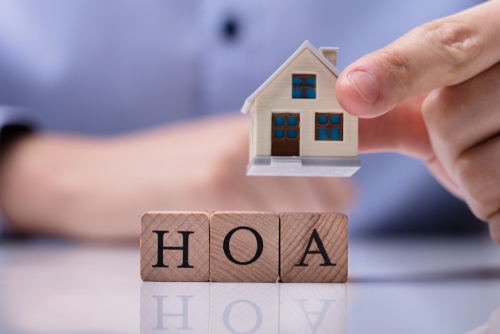Why Your Area Needs Efficient Austin HOA Management Today
Why Your Area Needs Efficient Austin HOA Management Today
Blog Article
The Crucial Role of HOA Administration in Upholding Area Criteria and Laws
Homeowners Associations (HOAs) offer a critical feature in preserving area requirements and regulations, acting as the guardian of shared worths and aesthetic appeals within neighborhoods. What effects do these dynamics hold for the future of neighborhood living?
Importance of HOA Administration
The relevance of efficient HOA monitoring can not be overstated, as it plays a crucial function in keeping the overall quality and appeal of a community. Property Owners' Organizations (HOAs) function as the foundation of residential communities, giving structure and company that cultivates an unified living environment. With efficient monitoring, HOAs ensure that neighborhood criteria are promoted, consequently securing residential or commercial property worths and boosting homeowners' lifestyle.
A well-managed HOA can assist in open interaction amongst homeowners, address complaints promptly, and create a sense of belonging. It establishes guidelines and guidelines that show the neighborhood's values, making sure regular upkeep of common rooms and amenities. Additionally, reliable monitoring help in economic preparation and source appropriation, which is crucial for the sustainability of community tasks and upkeep.
In addition, a reliable HOA can advertise area interaction by arranging events and promoting cooperation amongst citizens - austin hoa management. This not only strengthens relationships but additionally motivates energetic participation in decision-making procedures. Inevitably, effective HOA monitoring is crucial for cultivating a dynamic, appealing, and cohesive neighborhood that fulfills the needs and assumptions of its residents
Key Obligations of HOAs
Regularly, House Owners' Associations (HOAs) think a series of essential obligations that are essential for the smooth procedure and maintenance of an area. Among the key responsibilities of HOAs is to take care of the financial elements of the neighborhood, including budgeting, collecting dues, and maintaining reserve funds for future fixings and renovations. This financial oversight ensures that the neighborhood stays lasting and properly maintained.
Additionally, HOAs are accountable for preserving typical areas, such as parks, swimming pools, and landscaping. This involves routine maintenance, repair services, and improvements to guarantee these rooms continue to be practical and attractive for citizens. Communication is also a vital aspect of HOA duties; they must keep home owners informed concerning area news, upcoming conferences, and modifications to regulations or plans.

Moreover, HOAs often assist in community events and tasks, promoting a sense of belonging and interaction among homeowners. They may likewise handle administrative jobs, including record-keeping and compliance with state and local guidelines. Via these duties, HOAs play a vital role in promoting a cohesive and well-managed community, ultimately enhancing residential property worths and homeowners' top quality of life.

Enforcing Neighborhood Standards
To preserve an unified living setting, HOAs play a crucial function in implementing area standards. These requirements, normally laid out in governing records such as the Declaration of Problems, constraints, and commitments (CC&R s), are designed to preserve home values, make sure visual uniformity, and promote a sense of community among residents. HOAs should guarantee that all property owners comply with these guidelines to create a well-kept neighborhood.
Enforcement devices can differ, yet commonly entail routine assessments of residential properties, interaction with locals concerning violations, and the charge of fines for non-compliance. Such procedures may consist of penalties, requests for corrective activity, or, in extreme cases, lawful procedures. A proactive strategy to enforcement not just discourages potential offenses but additionally promotes a culture of liability among residents.
HOAs must plainly communicate expectations, repercussions, and criteria to all home owners. Ultimately, effective enforcement of community requirements by HOAs is crucial for keeping the total top quality of life within the area and supporting the values that citizens have invested in their homes.
Dispute Resolution Techniques
Efficient dispute resolution methods are crucial for keeping a participating and calm area within home owners' organizations (HOAs) HOAs usually act as the initial line of protection in attending to disagreements that occur amongst homeowners. Carrying out proactive interaction techniques is crucial; this consists of developing clear channels for locals to voice concerns and complaints. Normal meetings and community forums can promote open discussion, enabling members to share their point of views and look for good understanding.
Additionally, arbitration plays a significant function in resolving disputes (austin hoa management). Neutral third-party mediators can assist promote discussions and guide events towards a collaborative option. This approach highlights concession and cultivates a sense of neighborhood, instead of allowing disputes to intensify right into controversial confrontations
Moreover, establishing and applying a clear collection of policies and treatments for taking care of disputes is important. These standards should be interacted successfully to all homeowners, ensuring everyone understands the process for lodging problems and looking for resolution. Last but not least, providing conflict resolution training for board members and community leaders furnishes them with the required skills to handle conflicts successfully, making certain that problems are settled agreeably and in conformity with the area's laws and criteria.
Enhancing Residential Or Commercial Property Values
Keeping unified relationships amongst citizens not only fosters a feeling of neighborhood but additionally plays a considerable role in boosting building values within homeowners' organizations (HOAs) Efficient HOA management makes sure that community criteria and guidelines are upheld, creating an atmosphere where home upkeep is prioritized. Properly maintained typical areas, adherence to building standards, and timely enforcement of regulations add to an appealing community that official statement brings in prospective customers.

Additionally, normal maintenance and renovation projects, such as landscape design and facility upgrades, show favorably on residential property values. HOAs that successfully manage spending plans to fund these efforts show a commitment to lasting value conservation.
Ultimately, an HOA that prioritizes neighborhood relations and residential property criteria creates a preferable living setting. This not only benefits existing residents but likewise places the community favorably in the actual estate market, ensuring that residential property worths remain eye-catching and durable to future homeowners.
Conclusion
To conclude, HOA administration is important for preserving area check this standards and policies, thus promoting an unified living setting. Via the enforcement of guidelines, regular home examinations, and reliable problem resolution strategies, HOAs play a pivotal role in enhancing home values and advertising openness amongst homeowners. The aggressive actions applied by HOAs not just shield the visual stability of neighborhoods however likewise add to a cohesive atmosphere that sustains open interaction and partnership among all locals.
Through effective management, HOAs make certain that area criteria are maintained, thus safeguarding home values and boosting homeowners' high quality of life.
Through these responsibilities, HOAs play an essential duty in promoting a cohesive and well-managed neighborhood, ultimately boosting building values and residents' top quality of life.
Eventually, effective enforcement of area requirements by HOAs is important for maintaining the general quality of life within the area and maintaining the values that citizens have spent in their homes.
Offering problem resolution training for board participants and neighborhood leaders equips them with the necessary skills to manage disagreements successfully, ensuring that conflicts are resolved amicably and in accordance with the community's policies and criteria.
Maintaining harmonious relationships among citizens not only promotes a sense of area however additionally plays a significant role in improving go to website residential property worths within house owners' associations (HOAs)
Report this page